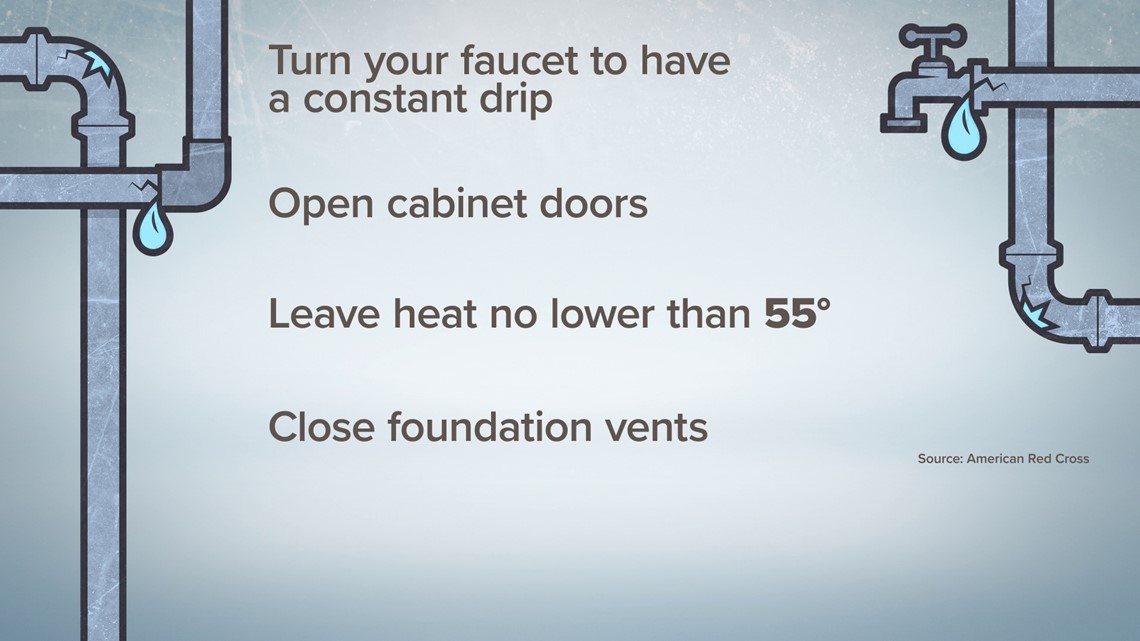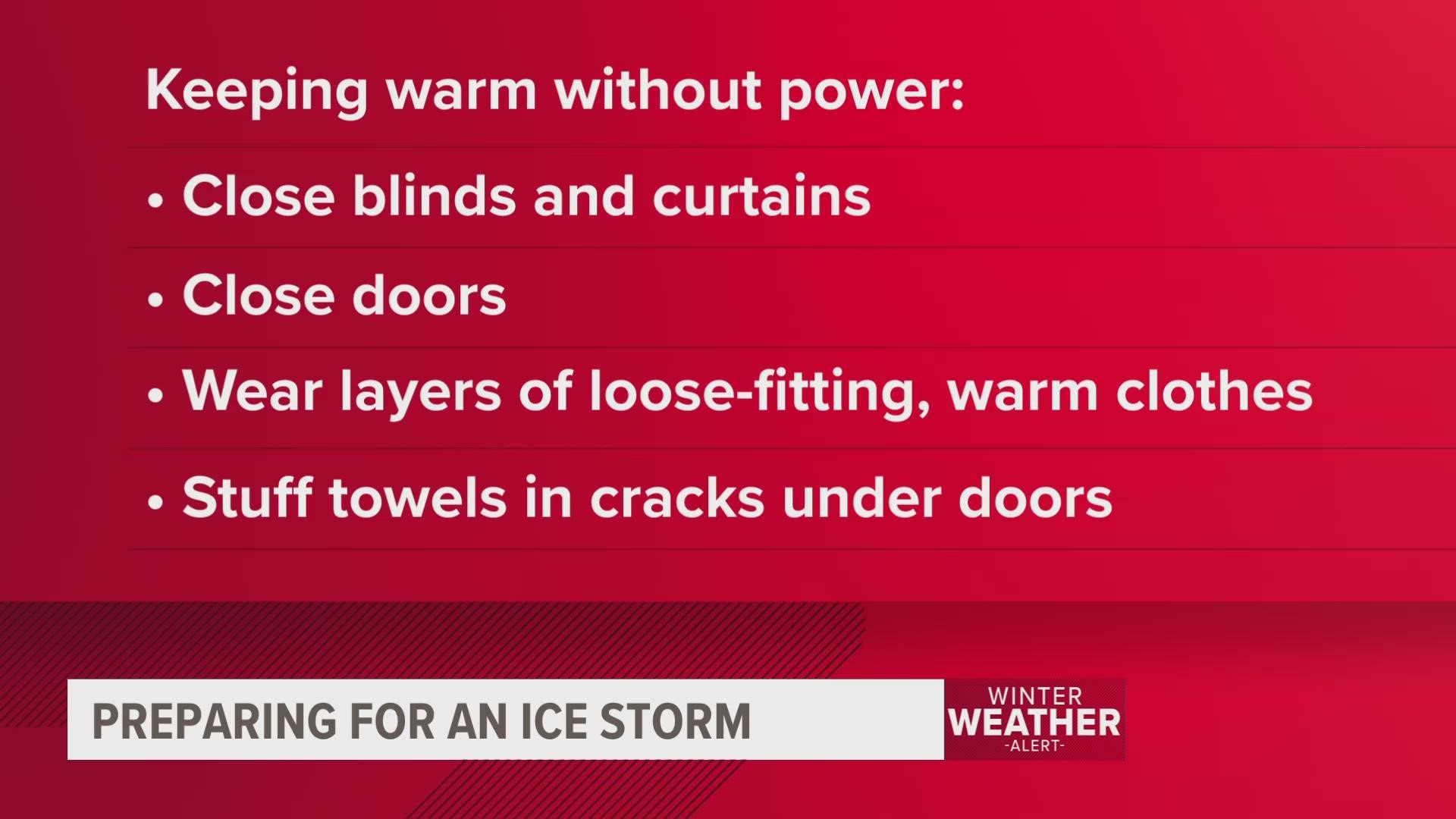GRAND RAPIDS, Mich. — With a winter storm impacting West Michigan, there's a high likelihood that power could be knocked out in some areas.
Snow and ice are likely to impact travel during a busy evening commute, and strong winds are also in the mix.
Stay up-to-date on the latest forecast models and weather warnings by following 13 ON YOUR SIDE on Facebook, subscribing to our YouTube channel, downloading our weather app (available to download for free in the App Store or Google Play Store) and streaming us live on 13+, available for free download on Roku and FireTV.
You can see the latest winter forecast here.
Here are some tips to keep yourself safe:
Ahead of the storm
Thinking ahead could save you time and energy in the event a winter storm knocks out your power.
- Charge all electronic devices. It’s advised to have an emergency battery or charging station available for use during an outage.
- Have an emergency kit that includes flashlights and extra batteries, water, canned food and blankets. Be prepared with enough medication, baby supplies and pet food if applicable. A battery-operated radio is also a good idea.
- Unplug sensitive electronics like TVs, computers and printers. Turn power strips off.
How to report, check power outages
Consumers Energy services more than 6 million Michiganders.
You can check the outage center here to report an outage and check the status of an existing outage.
In the event of a gas leak, you should call 911 first, and then the power company at 800-477-5050.
If you have to travel:
You'll want to take it nice and slow on the roads, as ice creates slippery road conditions. Be on the lookout for black ice, especially around bridges.
Make sure your car is in good, working order before you hit the road:
- Check the condition of the tires or consider snow/winter tires
- Replace the wiper blades, if needed
- Fill up on antifreeze and window washer fluid
- Ensure the battery has sufficient charge
- Try to keep the gas tank full
It's always a good idea to keep winter essentials in your car in case you get stuck.
Here's a list of items you may need:
- Show shovel & ice scraper
- Jumper cables
- Flashlight
- Blankets
- Phone charger
- Food and water
- Flares
- First aid kit
- Kitty litter (to help you get unstuck)
Food safety during a power outage
- Keep refrigerator and freezer doors closed to keep the contents inside as fresh as possible.
- If you must eat food, check it carefully for signs of spoilage.
- Fill plastic containers with water and place them in the refrigerator and freezer. Cold water bottles will help keep food cold during a power outage and can also be used for drinking water.
- Check with your physician or pharmacist about any medication that needs to be refrigerated. It is important to know how long medication is safe in the refrigerator without power.
- Make a plan to prepare for family members with disabilities or who have ill health.
- Throw away food that has been exposed to temperatures more than 40 degrees for two hours or more, or if they have unusual color, odor or texture.
- Remember: When in doubt, throw it out!
Where to find shelter
If your power goes out and it's getting too cold, there are resources available to you in our community.
Call 211 to get connected to warming centers. 211 is a free statewide service.
Running a Generator?
Having a generator around can help get the lights back on and electronics charged in the event a storm knocks out your power.
But it's vital to know how to prevent carbon monoxide (CO) poisoning.
- Generators and fuel should always be used outdoors and at least 20 feet away from windows, doors and attached garages.
- Install working carbon monoxide detectors on every level of your home. Carbon monoxide is a colorless, odorless gas that can kill you, your family and pets.
- Keep the generator dry and protected from rain or flooding. Touching a wet generator or devices connected to one can cause electrical shock.
- Always connect the generator to appliances with heavy-duty extension cords.
- Let the generator cool before refueling. Fuel spilled on hot engine parts can ignite.
- Follow the manufacturer’s instructions carefully.


You can learn more about protecting yourself in the event of a power outage or winter storm at FEMA's website here.
►Make it easy to keep up to date with more stories like this. Download the 13 ON YOUR SIDE app now.
Have a news tip? Email news@13onyourside.com, visit our Facebook page or Twitter. Subscribe to our YouTube channel.

